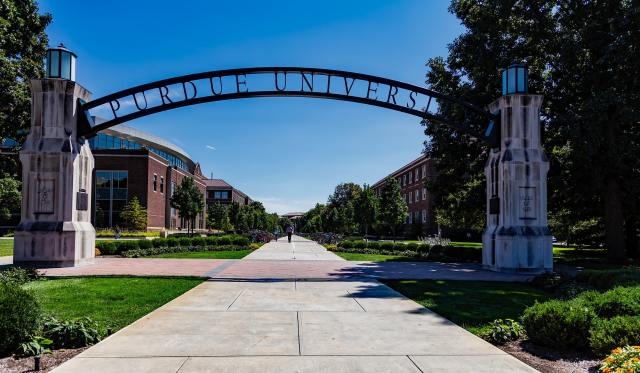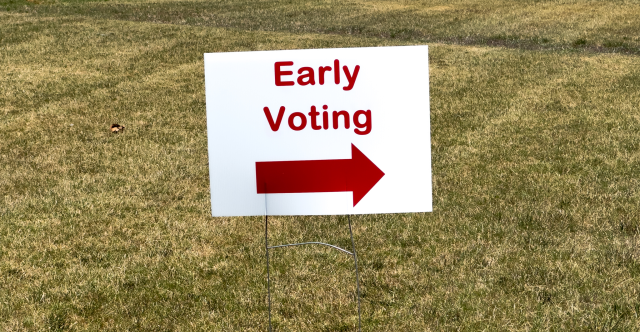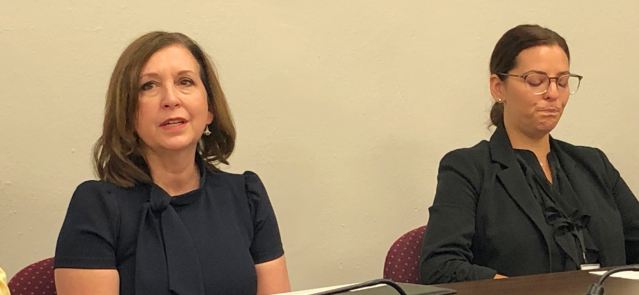Legislative candidates have spent more than $3 million on this year’s elections, including a few races where spending has already hit six figures.
House candidates have spent over a combined $1.1 million, while Senate hopefuls have spent nearly $1.9 million — a figure buoyed by a few big spenders, including in the Republican race for the 1st Senate District.
Outside groups, including local political committees and a few national super PACs, are chipping in as well.
Campaign finance reports were due Monday, ahead of the Aug. 6 primary election. Nearly every candidate’s report has been uploaded to the Kansas Governmental Ethics Commission’s website, but the Secretary of State’s Office is still working to enter a few paper forms through the end of the week.
Here’s a breakdown of how that spending could impact some of 2024’s highest-profile elections.
Senate District 1
The most expensive Republican primary comes in this district, where Sen. Dennis Pyle, R-Hiawatha, is fending off two major challengers.
Pyle has spent $83,000. But Rep. John Eplee, R-Atchison, has spent $130,000, and Craig Bowser has spent nearly $100,000. Plus, Bowser has some outside help — more on that later.
Senate District 19
House Minority Leader Vic Miller, D-Topeka, is at a major spending disadvantage in his bid for the 19th Senate District.
Miller has spent a little over $21,000, while challenger Patrick Schmidt — backed by Gov. Laura Kelly — has already spent nearly $132,000. The third candidate in the Democratic primary, ShaMecha King Simms, has spent less than $1,000.
Senate District 10
An expensive race is shaping up in this district, where Democrat Andrew Mall has already spent more than $38,000 and has more than $76,000 on hand heading into the general election.
Mall is challenging Sen. Mike Thompson, R-Shawnee, who’s also already spending big — more than $24,000 so far — and has over $83,000 on hand. Thompson last won the seat by a 3.8% margin in 2020 prior to redistricting, which saw the district’s borders slightly changed.
Senate District 22
Sen. Usha Reddi, D-Manhattan, has a big cash advantage over her Republican challenger, Brad Starnes.
The opponents have spent similarly so far ($4,038 and $6,321, respectively), but Reddi has more than $55,000 on hand while Starnes has just over $11,500. In 2020, then-Sen. Tom Hawk won 22nd by 2.6%, but the district is a bit more rural post-redistricting.
Senate District 2
The Democratic primary for this safe blue Lawrence-centered seat sees Rep. Christina Haswood slightly outspending Sen. Marci Francisco, $37,268 to $31,162.
Francisco has more on hand for the final week of the primary, with over $41,000 to Haswood’s less than $15,000. But outside spending could help the incumbent senator in this race — more on that later.
Senate District 34
Rep. Michael Murphy, R-Sylvia, has been outspent by challenger Bob Fee by almost $9,000 in this Republican primary.
A businessman and president of Fee Insurance Group in Hutchinson, Fee has spent just under $37,000, while the incumbent has spent nearly $28,000.
Fee also has almost $40,000 on hand to burn in the final few days of the primary campaign, while Murphy’s coffers are almost dry — he has less than $1,500 left.
House District 28
Democrat Ace Allen, who lost to Rep. Carl Turner by just 60 votes in 2022, is outspending and outraising the incumbent so far this year.
Allen has spent more than $13,000 and has $82,000 on hand, while Turner, R-Leawood, has less than half that amount (about $35,000) and has spent $8,673.
House District 49
Rep. Nikki McDonald, D-Olathe, holds what could be one of the GOP’s best pickup opportunities this year — former Rep. Brad Boyd, whom McDonald replaced last year, won the seat by less than 2 percentage points in 2022.
But McDonald has shown fundraising prowess and has almost $38,000 on hand heading into her first general election race. Her Republican opponent, Kurtis Ruf, has $3,461.
House District 15
Rep. Allison Hougland, D-Olathe, is another vulnerable incumbent who’s outspending and outraising her Republican challenger, Lauren Bohi.
Hougland, who won the seat by a 1.5% margin in 2022, has spent nearly $13,000 and still has more than $15,000 on hand. Bohi has spent $2,761 and has less than $1,000 left.
House District 30
Rep. Laura Williams, R-Lenexa, isn’t outspending her challenger, but she has nearly double Betsey Lasister’s cash on hand heading into the general.
Lasister has outspent Williams $7,550 to $5,793 so far, but the incumbent Republican has nearly $27,000 in the bank while her Democratic opponent has a little less than $15,000.
House District 67
Democrat Kim Zito has a major cash advantage on both Republicans who hope to win the seat held by Rep. Mike Dodson, who’s not seeking reelection.
Zito, who lost to Dodson by a 4.8% margin in this Manhattan district in 2022, has spent $8,781. That’s more than Republican candidates Angel Roeser ($5,231) and Kaleb James ($210) combined to date.
Plus, Zito has nearly $39,000 on hand for the general, while Roeser and James each have less than $1,000 in the bank.
House District 10
The Democratic primary for this open Lawrence seat — which doubles as the general election because no Republican is in the race — has a clear favorite according to the financials. Suzanne Wikle has spent almost $16,000, while Zachary Hawkins has’t spent a dollar.
Kelly’s PAC spends big — on salaries
Gov. Laura Kelly’s Middle of the Road PAC has spent more than $243,000 so far this year and still has over $935,000 on hand heading into the general election.
Interestingly, more than half of Middle of the Road’s spending has gone directly to two people: Will Lawrence, the governor’s chief of staff, and Lauren Fitzgerald, Kelly’s former press secretary.
Lawrence has been paid $75,000 this year for “consultant organizing services,” while Fitzgerald has received $57,000. The PAC did not immediately respond to a request for comment.
Expenditures on advocacy from the governor’s PAC include nearly $33,000 in radio and TV advertising to oppose House Minority Leader Vic Miller in the 19th Senate District race and more than $8,000 for mailings in support of Wanda Brownlee Paige in the 35th House District.
Super PAC spending
American Energy Action PAC, a group that promotes renewable energy — particularly wind and solar — made expenditures on behalf of several Republicans, along with Francisco.
- Sen. Marci Francisco — $29,988
- Rep. Tory Marie Blew — $29,595
- Sen. Chase Blasi — $28,011
- Sen. Brenda Dietrich — $27,949
- Rep. Mark Schreiber — $13,290
- Dawn Wolf, HD 107 candidate — $4,467
Americans for Prosperity was also a big independent expenditure spender, shelling out more than $305,000 in favor of legislative candidates.
Nearly every one of those beneficiaries is a Republican, except Rep. Marvin Robinson. Americans for Prosperity spent more than $8,000 to support Robinson, who faces three opponents in his Democratic primary.
Craig Bowser, who Americans for Prosperity-Kansas State Director Liz Patton said was “clearly the policy champion” that the 1st Senate District needs, also received major help from the group that endorsed him July 16. It spent more than $53,000 in support of Bower.
As for state political committees, the Chamber of Commerce’s PAC was one of the top spenders with more than $302,000 in expenditures so far this year.
Brett Stover is a Statehouse reporter at State Affairs Pro Kansas/Hawver’s Capitol Report. Reach him at [email protected] or on X @BrettStoverKS.






